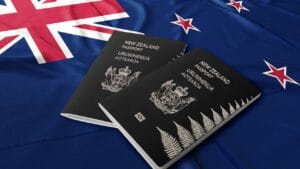5 Countries Offering Affordable Education for Indian Students to Study Abroad
Affordable education for Indian students is a dream fulfilled, but exorbitant tuition fees and living expenses can be challenging. Nevertheless, there are certain countries that provide quality education at an affordable cost. Following are the 5 cheapest countries to study abroad with low tuition and living expenses. 1. Germany—Study in World-Class Universities for Free Why Study in Germany?Germany is a leading destination for foreign students due to the fact that the majority of public universities in Germany have no tuition fees, with only a minimal administrative fee. Germany boasts a high-quality education system, particularly in the fields of engineering, business, and medicine.Popular Courses: Engineering Business Medicine Social Sciences Estimated Costs: Tuition Fees: Free (except administrative fees) Living Expenses: ₹70,000–₹1,00,000 per month Key Universities: Technical University of Munich Heidelberg University University of Stuttgart 2. Norway—Top-Notch Education without Tuition Fees Why Study in Norway?Public universities in Norway provide free education to all students, including non-EU students. Norway has a very good academic reputation, particularly in areas such as marine sciences and renewable energy.Popular Courses: Marine Sciences Renewable Energy Computer Science Estimated Costs: Tuition Fees: Free Living Expenses: ₹1,00,000 – ₹1,50,000 per month Key Universities: University of Oslo Norwegian University of Science and Technology (NTNU) 3. Taiwan—Low Tuition Fees with High-Quality Education Why Choose Taiwan?Taiwan has low tuition fees and a low cost of living when compared to Western nations. It is an emerging technology and business education hub.Popular Courses: Engineering Business Medicine Information Technology Estimated Costs: Tuition Fees: ₹150,000–₹300,000 per annum Living Expenses: ₹40,000–₹70,000 per month Key Universities: National Taiwan University (NTU) National Tsing Hua University 4. Mexico—A Budget-Friendly Destination Why Choose Mexico?Mexico is a good choice because of its low fee structure and low cost of living. It also offers a rich culture and a good academic setting in humanities and environmental sciences.Popular Courses: Arts Humanities Business Environmental Sciences Estimated Costs: Tuition Fees: ₹1,00,000–₹3,50,000 per year Living Expenses: ₹40,000–₹70,000 per month Key Universities: National Autonomous University of Mexico (UNAM) Tecnológico de Monterrey 5. Poland—Low-Cost Education in Europe Why Study in Poland?Poland provides low tuition fees and a comparatively lower living expense than other countries in Europe. It is home to some of the oldest and most renowned universities in Europe.Popular Courses: Business Engineering Medicine IT Estimated Costs: Tuition Fees: ₹200,000–₹450,000 per annum Living Expenses: ₹50,000–₹80,000 per month Key Universities: University of Warsaw Jagiellonian University Conclusion For Indian students wishing to study overseas without a cost burden, these five nations provide great education at a reasonable price. If you wish to study engineering in Germany, marine sciences in Norway, or business in Poland, there are affordable opportunities for each.










